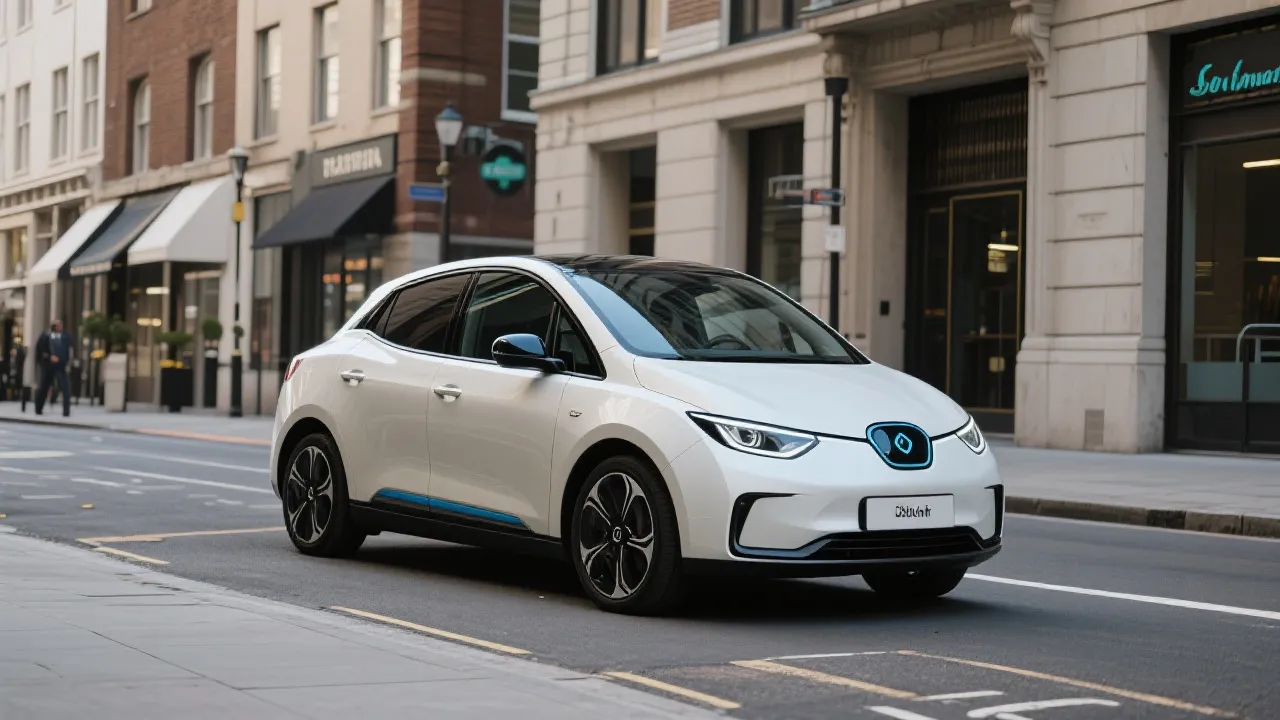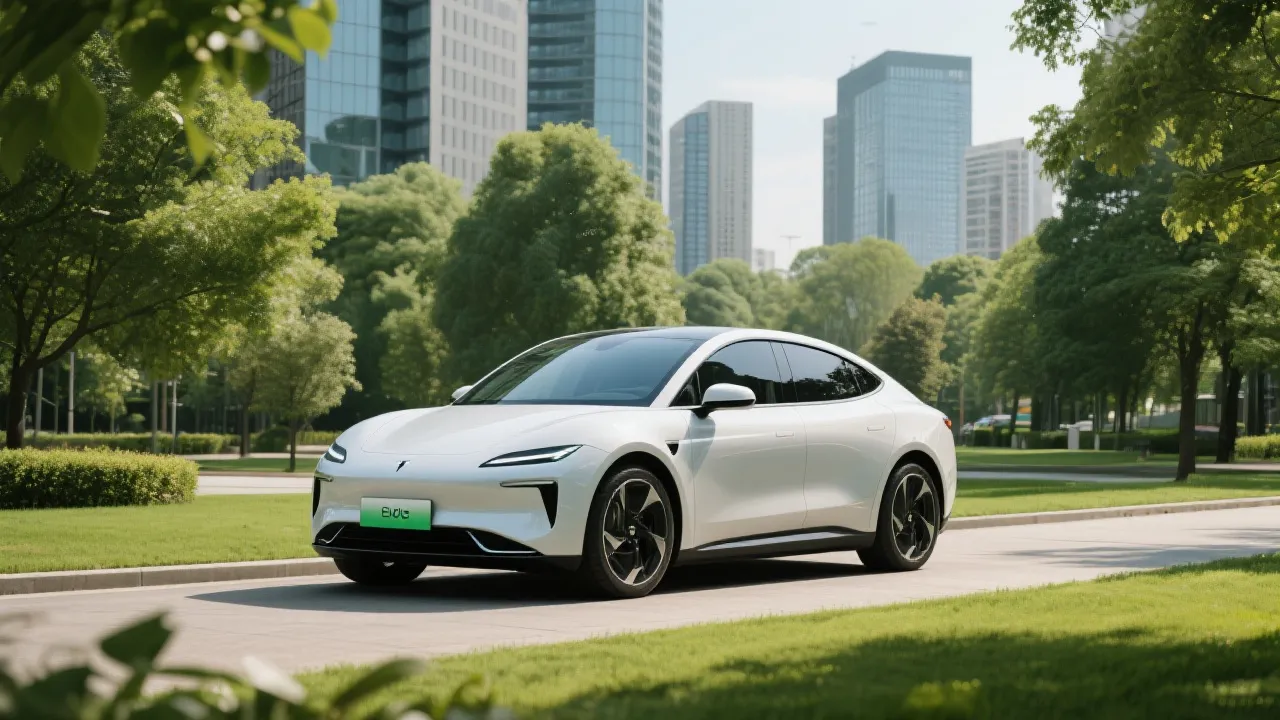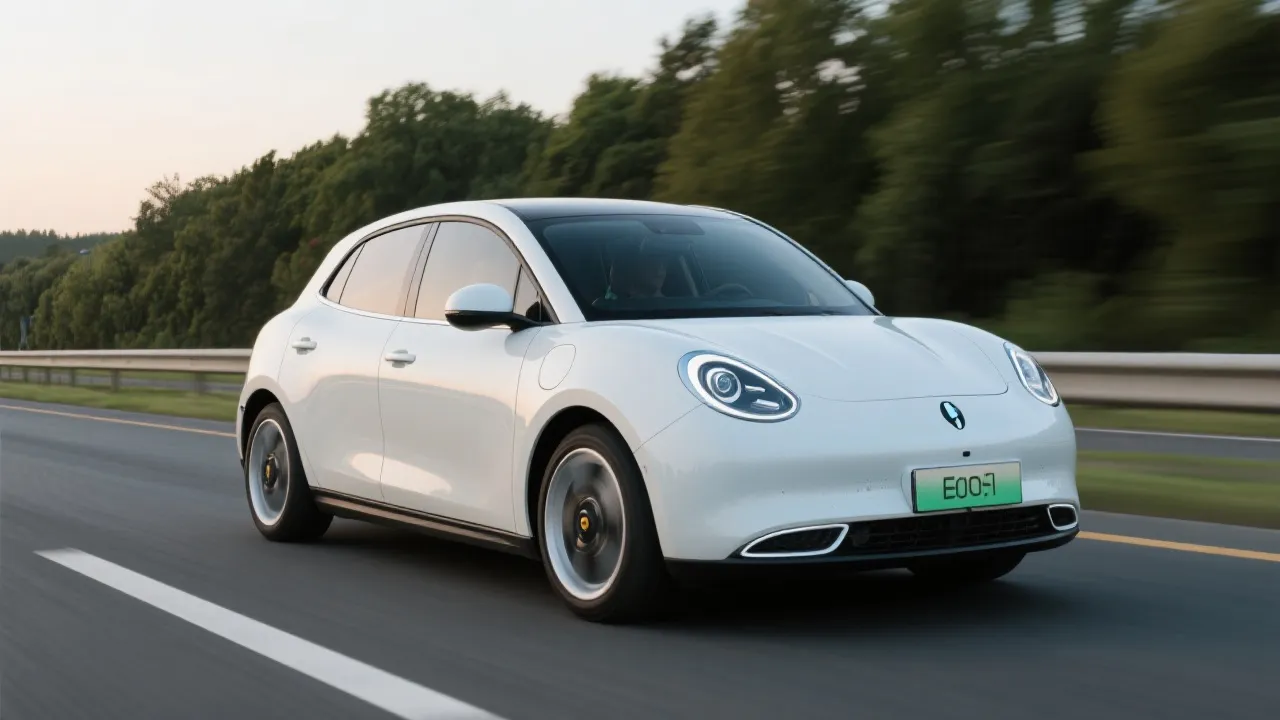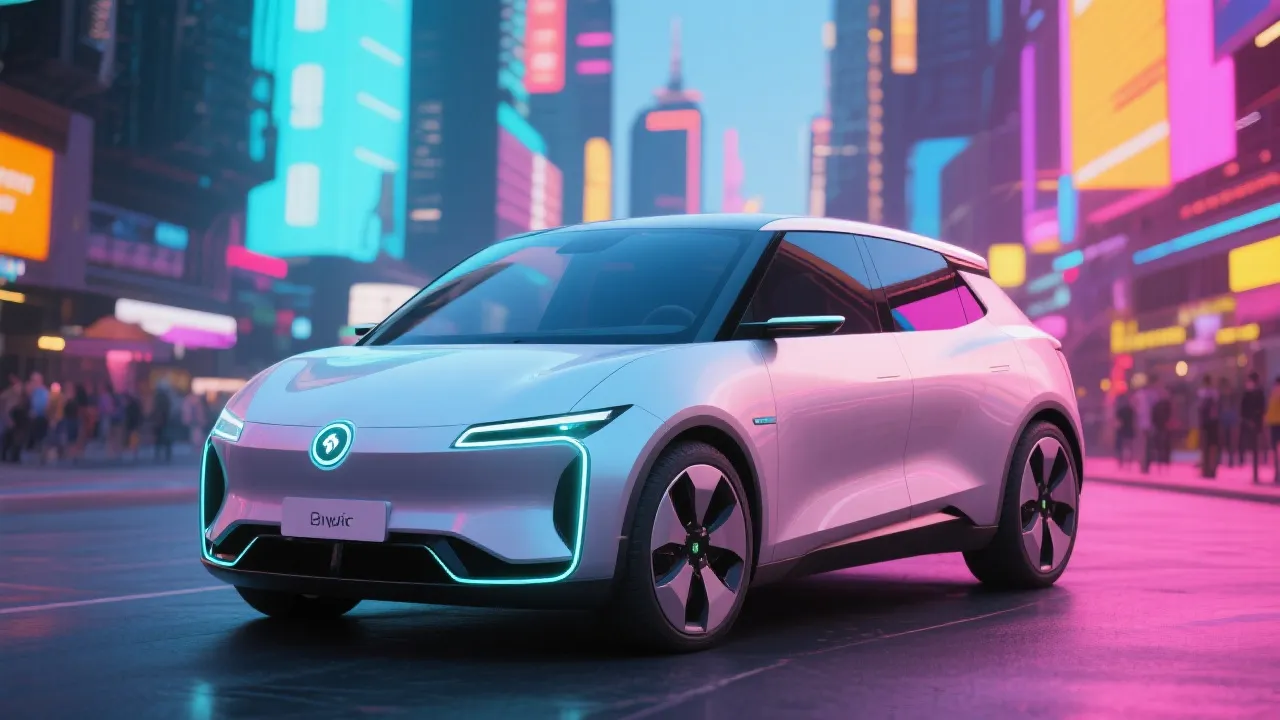Affordable Electric Cars Guide
This guide provides an extensive overview of "सबसे सस्ती इलेक्ट्रिक कार" or the most affordable electric cars available globally. As electric vehicles gain traction for their eco-friendly benefits and fuel efficiency, consumers are becoming interested in exploring economical options. This article will explore available models, financing options allowing for zero down payments, and the benefits of owning an electric vehicle.

The Growing Popularity of Electric Cars
Electric cars have become increasingly popular as environmentally conscious consumers seek sustainable and cost-effective transportation options. Among these offerings, the quest for "सबसे सस्ती इलेक्ट्रिक कार," which translates to "the cheapest electric car," becomes prominent. This article delves into the options available for budget-savvy consumers worldwide, focusing on affordable electric vehicles and various financing alternatives. The electric vehicle (EV) market is rapidly evolving, driven not only by technological advancements but also by changing consumer attitudes toward sustainability, climate change, and the need for cleaner urban mobility.
Exploring the Most Economical Options
Several car manufacturers are leading the charge in providing cost-effective electric vehicles, making sustainable transport accessible to a wider audience. In English-speaking countries, notable models such as the Chevrolet Bolt EV, Nissan Leaf, Hyundai Kona Electric, and Kia Niro EV offer zero down payment financing, making them attractive choices for budget-conscious buyers. These models are designed to meet a variety of consumer needs—from daily commuting to family travels—while remaining budget-friendly and environmentally friendly.
| Electric Car Model | Key Features |
|---|---|
| Chevrolet Bolt EV | Long-range battery, advanced safety features, spacious interior. |
| Nissan Leaf | Efficient drivetrain, modern tech, affordable price. |
| Hyundai Kona Electric | Long range, user-friendly infotainment, smooth drive. |
| Kia Niro EV | Versatile design, strong performance, and generous warranty. |
source: [Chevrolet](https://www.chevrolet.com/electric), [Nissan](https://www.nissan-global.com/EN/TECHNOLOGY/OVERVIEW/electric_vehicle.html), [Hyundai](https://www.hyundaiusa.com/us/en/vehicles/kona-electric), [Kia](https://www.kia.com/us/en/niro-ev)
The Expanding Electric Vehicle Market
The global electric vehicle market is booming, with projections indicating steady growth in sales year-on-year. The increasing recognition of the detrimental effects of fossil fuels on both the environment and public health is perfecting a potent backdrop for the growth of the EV market. According to various industry reports, the electric vehicle market was valued at approximately USD 163.01 billion in 2020 and is expected to witness a compound annual growth rate (CAGR) of around 43.2% from 2021 to 2028. This surge can be attributed to several factors, all contributing to the increasing adoption of electric cars.
Government Support and Incentives
Governments worldwide are recognizing the importance of reducing greenhouse gas emissions and are creating favorable conditions for the adoption of electric vehicles. This is achieved through subsidies, tax rebates, and grants aimed at both consumers and manufacturers. For instance, several countries offer cash incentives for purchasing electric cars and significant tax credits that can offset the initial cost, making them more attractive to potential buyers.
In the United States, the federal tax credit for electric vehicles can provide savings of up to $7,500 depending on the model and battery capacity, while states may offer additional incentives. In Europe, various countries are implementing scrappage schemes where old internal combustion vehicles can be traded in for electric ones, making the switch even more economical.
Charging Infrastructure: The Backbone of Electric Vehicle Adoption
One of the primary concerns for potential electric vehicle owners is the adequacy of charging infrastructure. As charging stations become more ubiquitous, the anxiety surrounding electric vehicle range and charging times is diminishing. Governments and private companies are investing heavily in expanding the charging network, ensuring drivers can access charging facilities in urban, suburban, and rural areas.
Charging technology has also seen significant advancements, with rapid and ultra-rapid charging stations enabling EVs to gain substantial power within minutes. Some electric vehicles now support fast charging, allowing a 0-80% charge in as little as 30 minutes, which is a substantial improvement over earlier models. The emergence of home charging solutions further alleviates concerns, providing consumers with the capability to charge their electric cars overnight, just like their smartphones.
Financing Your Dream Electric Car
Navigating through financing options can significantly ease the financial burden of purchasing an electric vehicle. Many manufacturers offer zero down payment plans, some even with interest-free installments, lowering the financial entry barrier. This approach not only aids in cost savings but also broadens the consumer base for electric cars. Many financing options cater to individuals with different credit profiles—allowing greater accessibility to EVs for all consumers.
Additionally, some financial institutions are beginning to offer specialized loans for electric vehicles, which consider the potential savings on fuel and maintenance over time. This makes an electric vehicle purchase not only viable but attractive in terms of future savings, as the total cost of ownership is often lower compared to traditional gasoline-powered cars.
Step-by-Step: Securing an Electric Car with No Down Payment
- Evaluate multiple financing offerings from various dealers and websites. Make comparisons to understand what options are available and how different terms affect monthly payments.
- Understand your credit score, as it may influence your eligibility for zero down payment plans. A higher credit score typically results in better financing options and rates.
- Contact dealers to negotiate terms and clarify any hidden costs. Be open to discussing your budget constraints and inquire about any ongoing promotions or discounts.
- Complete the formalities, opting for digital processing where available to streamline the procedure. Online paperwork can save time and provide clarity on the terms of the agreement.
- Assess insurance costs as part of budgeting for your electric vehicle. Insurance premiums may vary based on the vehicle's safety ratings and repair costs.
Environmental Impact of Electric Vehicles
The shift from traditional combustion engines to electric vehicles presents a significant step towards reducing global carbon emissions. As the electricity grid shifts toward renewable sources such as solar, wind, and hydropower, the carbon footprint of operating electric cars diminishes considerably compared to their gasoline or diesel counterparts. Several studies indicate that electric vehicles, even when charged using fossil fuel-based electricity, still contribute to lower overall emissions compared to traditional vehicles due to higher efficiency rates.
Moreover, electric vehicles offer societal benefits through reduced air pollution and noise in urban environments. The growing number of EVs is contributing to cleaner air, which is especially crucial in densely populated areas where smog and pollution have adverse health effects. Additionally, the silent operation of electric cars warrants a quieter commuting environment, improving the quality of life in cities.
Car Advice and Maintenance for Electric Vehicles
Owning an electric vehicle comes with its unique set of maintenance considerations. While they typically require less maintenance than traditional vehicles (for instance, lacking oil changes, fuel filters, and spark plug replacements), they do have some specific needs that should be taken into account. Regular battery health checks are advisable, as battery longevity is crucial for long-term ownership satisfaction. Most manufacturers offer warranties specifically covering the battery for several years or a substantial mileage limit, providing peace of mind to buyers.
Additionally, schedule regular inspections for tires and brakes, as electric cars can experience different wear patterns due to their torque delivery. Keeping the vehicle clean and properly maintained not only helps in retaining its value over time but also ensures that the EV continues to perform at its best.
FAQs
- Are electric cars really more cost-effective in the long run?
Yes, while initial costs can be high, savings on fuel and maintenance make electric cars economical over time. Lower operating costs are leading many consumers to choose electric over traditional vehicles. - Do zero down payment options add hidden costs?
Not typically, but reviewing the payment plan thoroughly ensures awareness of any potential additional costs. Utilize online calculators to estimate total payments over the life of the loan. - Is charging infrastructure sufficiently developed to support all-electric driving?
While infrastructure is expanding rapidly, availability varies by region. Check local charging station networks to gauge accessibility in your area. - What happens if I need to travel long distances?
Plan your route with consideration for charging station locations. Apps are available to help identify charging stations along your route and provide live data on available chargers. - What is the typical lifespan of an electric vehicle battery?
Most electric vehicle batteries are designed to last between 8 to 15 years, depending on usage patterns and environmental factors. However, many manufacturers offer warranties that cover 8 years or more.
Conclusion
The transition to electric vehicles represents not just an environmental commitment but also a savvy financial decision. With models like the Chevrolet Bolt EV and Nissan Leaf, combined with flexible financing plans, switching to an electric car has never been more accessible. As technology continues to advance and more charging stations are established, the future of personal transportation could very well tilt in favor of electric vehicles, thereby revolutionizing mobility in modern society.
Future Trends in Electric Vehicles
As the electric vehicle market evolves, several trends indicative of the future are emerging. The development of autonomous electric vehicles is garnering significant attention and investment, providing the enduring promise of reducing traffic, increasing safety, and building efficiencies into urban mobility. Car manufacturers are heavily investing in research and development to find better battery technologies that could lower costs and improve efficiency further. Solid-state batteries, which promise higher capacity, faster charging times, and longer lifespans are among the cutting-edge technologies being explored.
Another crucial trend is the push towards more sustainable production processes. With increasing consumer awareness regarding sustainability, manufacturers are prioritizing eco-friendly practices in sourcing materials and designing vehicles. This not only reduces environmental impact but can also enhance brand loyalty among consumers who value sustainability.
Disclaimer
1). The above information is sourced from online resources, accurate as of October 2023. 2). For more precise details, please refer to the official websites of the car manufacturers and dealers.
References
[Chevrolet](https://www.chevrolet.com/electric), [Nissan](https://www.nissan-global.com/EN/TECHNOLOGY/OVERVIEW/electric_vehicle.html), [Hyundai](https://www.hyundaiusa.com/us/en/vehicles/kona-electric), [Kia](https://www.kia.com/us/en/niro-ev), [Electric Vehicle Market Report 2023](https://www.marketresearchreport.com/electric-vehicle-market), [International Energy Agency (IEA)](https://www.iea.org/topics/energy-efficiency), [U.S. Department of Energy](https://www.energy.gov/eere/electricvehicles/electric-vehicles).









